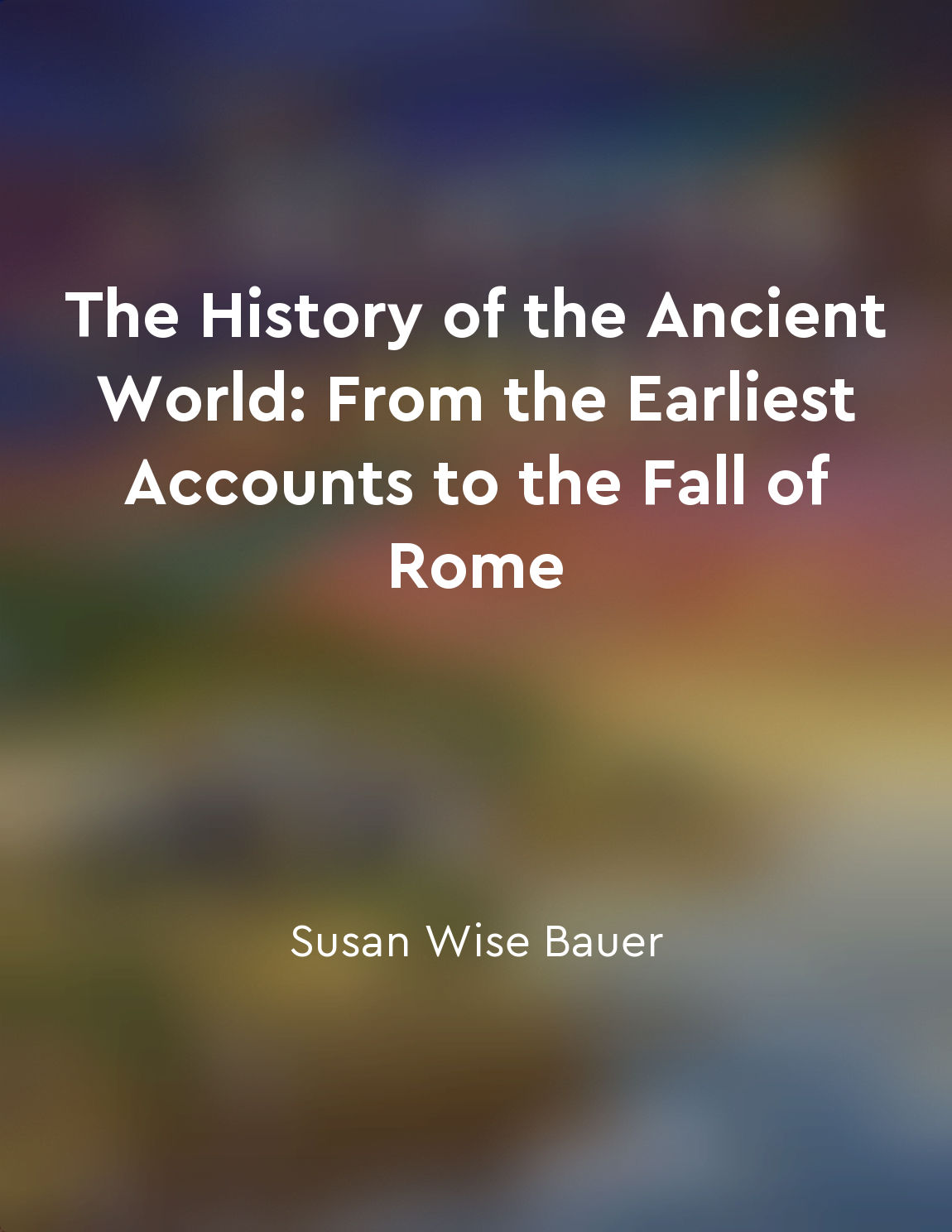Audio available in app
Investigate the social structure and daily life of ancient Rome from "summary" of The History of the Ancient World: From the Earliest Accounts to the Fall of Rome by Susan Wise Bauer
Ancient Rome was a society built on a complex social structure that dictated the roles and relationships of its citizens. At the top of the hierarchy were the patricians, wealthy landowners who held most of the political power in the early Roman Republic. Beneath them were the plebeians, the common people who made up the majority of the population. Despite their lower status, the plebeians had some rights and could participate in the political process through the popular assemblies. Daily life in ancient Rome revolved around the family, which was the basic unit of Roman society. Families were headed by the paterfamilias, or male head of the household, who had absolute authority over his wife, children, and slaves. The family home, or domus, was typically a multilevel structure with rooms for sleeping, cooking, and socializing. Wealthier Romans might also have a country villa where they could escape the crowded city streets. In addition to the family, religion played a central role in Roman daily life. The Romans worshipped a pantheon of gods and goddesses, with each deity responsible for specific aspects of life. Public ceremonies and sacrifices were held regularly to honor the gods and ensure their favor. The Romans also believed in the importance of maintaining good relationships with their ancestors, whose spirits were thought to protect and guide the living. Economic activities were another key aspect of Roman daily life. Agriculture was the foundation of the Roman economy, with most people involved in some form of farming. In the cities, trade and commerce thrived, as merchants imported goods from all corners of the empire. Slavery was also widespread in ancient Rome, with enslaved people performing a variety of tasks, from manual labor to household chores.- Investigating the social structure and daily life of ancient Rome provides valuable insights into the beliefs, practices, and relationships that shaped this influential civilization. By understanding how the Romans lived and interacted with one another, we can gain a deeper appreciation for their achievements and legacy in the history of the ancient world.


